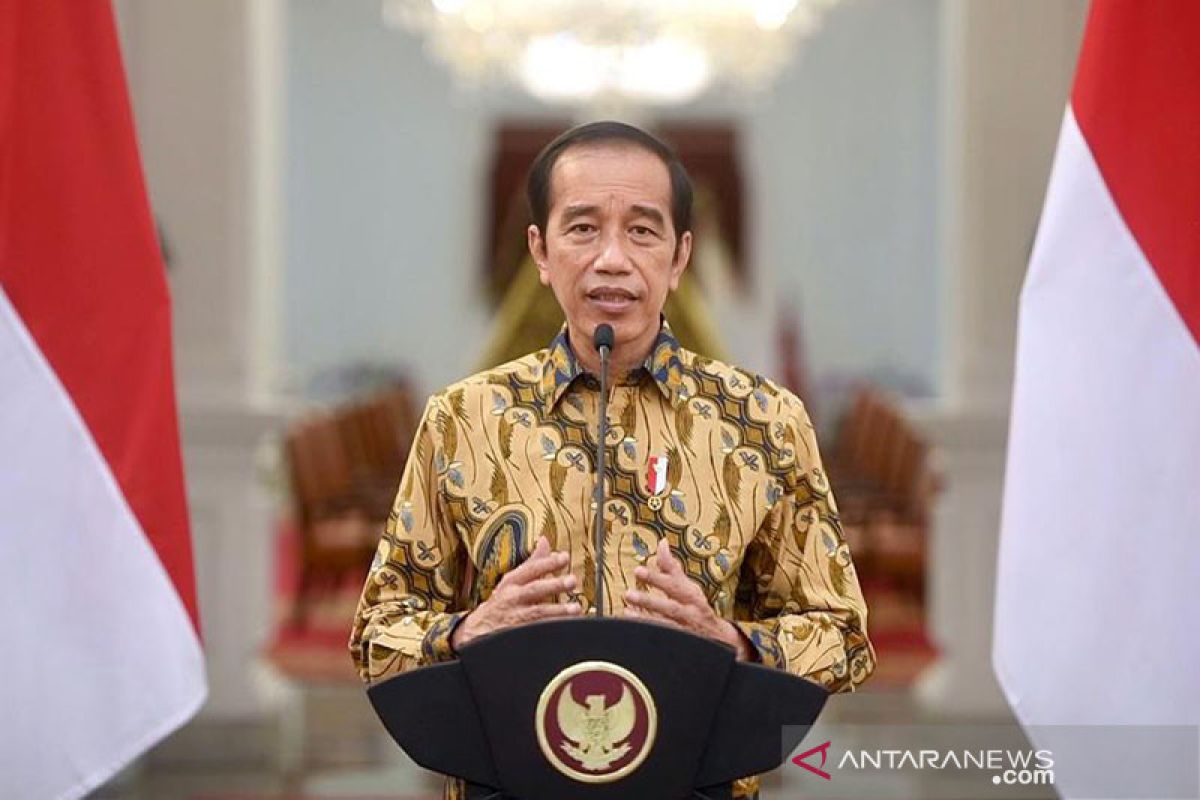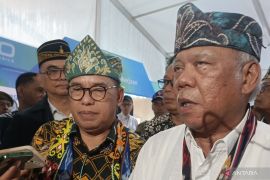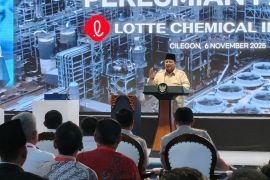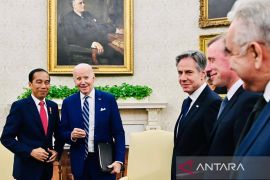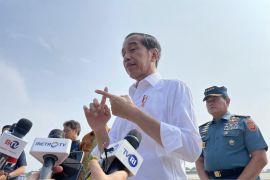"Back in January, February, March, April, and May, COVID-19 (transmission) had started to decline. If the coronavirus disease (spread) went down, the economy would definitely grow. It was actually apparent, yet unexpectedly there was something called the Delta variant, a new type of variant of the disease," President Jokowi stated at the Merdeka Palace yard, Jakarta, on Friday.
President Jokowi made the statement in the presence of 24 micro-business entrepreneurs, who received the Productive Banpres Produktif Usaha Mikro (BPUM) in 2021.
"A new variant of the coronavirus disease has emerged in India and then surfaced in all countries in the world, thereby rattling the global economy. We are the same. With the emergence of the delta variant, the number of positive cases immediately and drastically rose," he affirmed.
The emergency community activity restrictions (PPKM) were enforced on July 3-20, 2021, in the wake of a surge in positive cases.
"There was no other way. At that time, in the Java and Bali islands, we saw all red dots, none yellow, so the decision to enforce emergency community activity restrictions was very difficult since there was no other way, as the cases kept increasing. Thank God, now at least, we can push the brake (on the cases) slowly, but we can stem (the increase in positive cases)," the president remarked.
Related news: COVID-19 case spike largely attributed to delta variant: LIPI
Jokowi also drew attention to a decline in the number of confirmed COVID-19 positive cases in the Java and Bali islands.
"However, outside Java, (the cases) went up. Indeed, transmission of the delta variant was very rapid," he pointed out.
The president believes it was beyond anyone’s realm to predict when the pandemic would end.
"The WHO has not been able to predict (the end of pandemic) either. Once again, what we always do is that we can handle the health aspect, but the economic side must be handled slowly," Jokowi stressed.
The head of state noted that it was not the government’s choice to enforce lockdown measures, as it did not necessarily solve issues related to COVID-19.
"We can't close. 'Lockdown' is like in other countries. 'Lockdown' means completely closed. Yesterday, emergency community activity restrictions were semi 'lockdown'. (During that time), I entered village(s), I entered (some) areas, and everyone begged (for the restrictions) to be lifted. 'Lockdown' does not guarantee that the problem will be solved," he stressed.
Related news: Successful lockdown will depend on public discipline: Muhammadiyah
Related news: Inform public of government's partial lockdown evaluation: DPR
Jokowi has set a target to vaccinate 70 percent of the Indonesian citizens by the end of 2021.
"God willing, if 70 percent of the Indonesians are vaccinated, at least the transmission of this virus will somewhat be stemmed, if herd immunity is achieved," he stated.
Health Ministry’s spokesperson for COVID-19 Vaccination Siti Nadia Tarmizi noted that the delta variant currently accounted for 85 percent of the coronavirus disease cases in Indonesia.
This virus variant had a very high transmission rate and causes more severe symptoms than the original virus type.
Based on data from the COVID-19 Task Force as of July 29, 2021, the total number of COVID-19 cases in Indonesia had reached 3,331,206, with the addition of 43,479 cases in 24 hours. A total of 554,484 active cases were recorded.
Some 45,494 patients recovered, thus bringing the recovery count to 2,686,170.
Some 1,893 other people succumbed to COVID-19, thereby pushing the total death toll from COVID-19 in Indonesia to 90,552.
Related news: Health Ministry shoots down rumors of total lockdown in Jakarta
Translator: Desca L N, Mecca Yumna
Editor: Suharto
Copyright © ANTARA 2021
